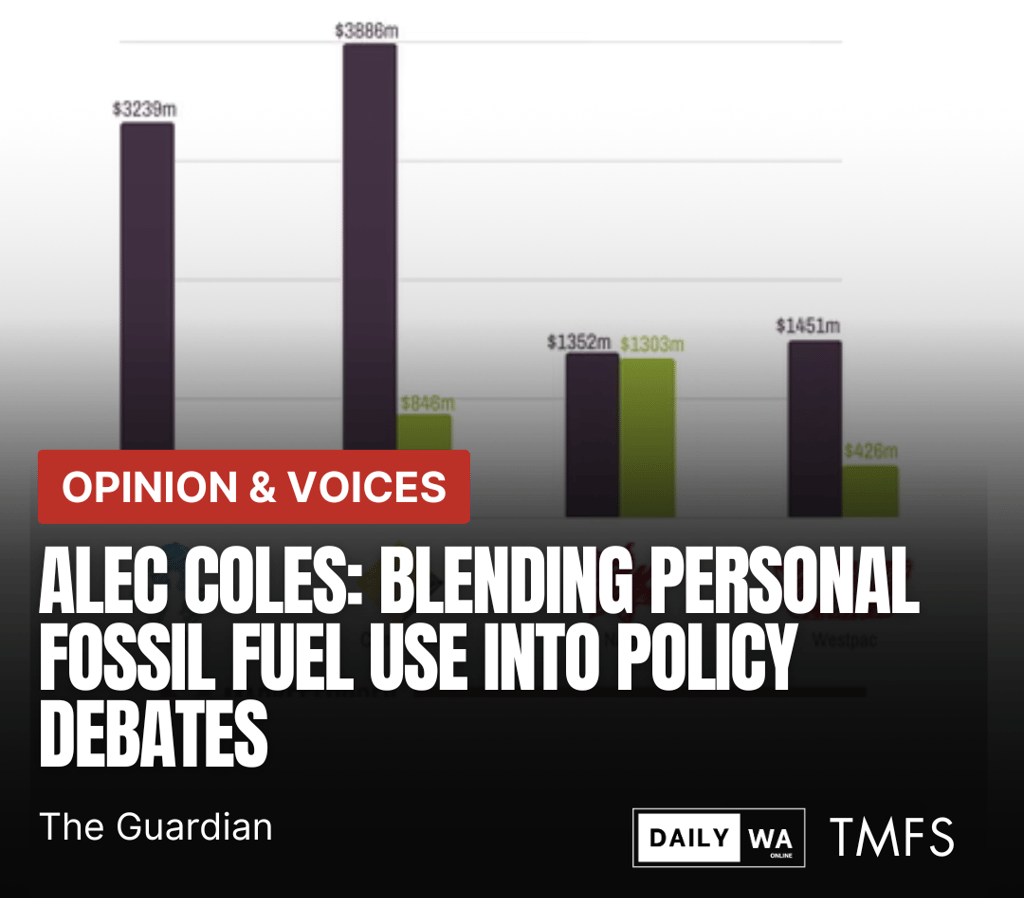Why Personal Choices Matter in Australia’s Fossil Fuel Policy Debate
Alec Coles argues that personal fossil fuel use should not be excluded from broader policy debates. His perspective underscores the importance of aligning individual actions with national commitments to climate responsibility.
OPINION & VOICES


Australia’s climate debate is often framed through the lens of government policies, corporate responsibilities, and global agreements. Yet, in the midst of these large-scale discussions, the role of individual behaviour is frequently overlooked. Alec Coles has drawn attention to this imbalance, suggesting that personal fossil fuel use must be part of the national conversation if policies are to be credible and effective.
The reasoning is straightforward. Every litre of petrol consumed, every household reliant on gas heating, and every short-haul flight taken contributes to the nation’s overall carbon footprint. While governments and corporations hold the greatest power to drive systemic change, individuals are not merely bystanders. Excluding personal choices from the policy debate creates a gap between rhetoric and reality, undermining both accountability and trust.
Coles’ intervention comes at a time when Australia is grappling with rising emissions and growing international scrutiny. The nation has committed to ambitious reduction targets, but progress remains uneven. Policies often focus on large-scale transitions such as renewable energy investment, carbon offsetting, and industrial reform. These are necessary steps, yet they cannot mask the fact that household and lifestyle emissions remain significant contributors to the challenge.
Real-world examples illustrate this dynamic. Countries such as Sweden and Denmark have successfully integrated personal responsibility into their climate frameworks through incentives and behavioural nudges. Whether it is taxing high-emission activities, rewarding low-carbon lifestyles, or embedding climate literacy into public education, these measures acknowledge that systemic change is amplified when individuals play their part.
For Australia, the implications are clear. Encouraging personal accountability does not mean blaming households for structural issues. Instead, it highlights the alignment between daily decisions and national policy objectives. Choosing public transport, investing in home energy efficiency, or reducing unnecessary consumption may appear small in isolation, but collectively these actions shift demand and signal to markets and policymakers that citizens are committed to the transition.
Coles’ emphasis on blending personal fossil fuel use into policy debates also touches on fairness. Many Australians expect industries to cut emissions while continuing to live in ways that sustain high consumption of fossil fuels. This disconnect risks eroding public support for policies that require sacrifice or adjustment. By recognizing the role of personal choices, the debate becomes more honest and balanced, creating space for shared responsibility.
The path forward involves weaving individual action into broader frameworks without losing sight of systemic reform. Policies that empower citizens—through subsidies for clean energy adoption, accessible low-carbon transport, or public campaigns that normalize sustainable lifestyles—can foster a culture of responsibility. This approach not only strengthens the legitimacy of climate policy but also builds social momentum that governments and corporations cannot ignore.
The debate over fossil fuels cannot be won solely in boardrooms or parliaments. It must also be reflected in the ways people live, consume, and adapt. Alec Coles’ perspective is a reminder that climate action requires coherence between the personal and the political. Only by integrating the two can Australia hope to meet its commitments and secure a sustainable future.
All rights belong to their respective owners. This article contains references and insights based on publicly available information and sources. We do not claim ownership over any third-party content mentioned.


